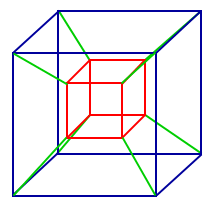From your earliest days of math you learned that the order in which you add two numbers doesn’t matter: 3+5 and 5+3 give the same result. The same is true for the addition of any finite set of numbers. But what if you are adding an infinite set of numbers?
For instance, in calculus you encounter series, which are infinite sums. Does the order of addition matter?
Surprisingly, yes, but only for some series. A series is said to converge absolutely if the sum of the absolute values of the terms converges. It is a fact that a series which converges absolutely must converge, and no matter how you rearrange the terms the sum will be the same.
Series that do not converge absolutely are wilder; they may or may not converge (so they are called conditionally convergent). But, if such a sequence does converge, it is even stranger still— by rearranging the terms in the sequence, you can get the series to converge to any value you want!
Presentation Suggestions:
Do an example with the alternating harmonic series:
1 – (1/2) + (1/3) – (1/4) + …
This series is conditionally convergent (because the harmonic series diverges). But by the alternating series test, it converges—in fact, to ln(2). As a demonstration, show students how to rearrange it to converge to any value (see Math Behind the Fact).
The Math Behind the Fact:
This fact is due to Riemann, and the basic idea is simple. To obtain a rearrangement that sums to X, just add enough positive terms from the series (in their original order) until the partial sums first exceed X, then add enough negative terms from the series (in their original order) until the partial sums first dip below X, then repeat and continue with the successive positive terms, then the successive negative terms, etc. This will yield a rearrangement of the original series that sums to X.
This fact shows how careful one has to be when switching the order of addition in a conditionally convergent series.
How to Cite this Page:
Su, Francis E., et al. “Does Order of Addition Matter?.” Math Fun Facts. <http://www.math.hmc.edu/funfacts>.
References:
Walter Rudin, Principles of Mathematical Analysis, Chapter 3.
Fun Fact suggested by:
Francis Su

